-
 The Best Smart Home Devices for 2020: Check Out Our Rundown of the Best Smart Home Hubs at the Same Time.
The Best Smart Home Devices for 2020: Check Out Our Rundown of the Best Smart Home Hubs at the Same Time.
-
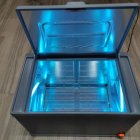 A UV Sanitizer Box Has Become a Necessity in Today's Uncertain Times: Best UV Sanitizing Boxes You Can Buy to Disinfect Your Household Items (2020)
A UV Sanitizer Box Has Become a Necessity in Today's Uncertain Times: Best UV Sanitizing Boxes You Can Buy to Disinfect Your Household Items (2020)
-
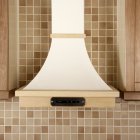 Keep Your Kitchen Free from Fumes and Odours. Check out the 10 Best Kitchen Chimneys in India and Tips to Get Optimum Performance from Them (2020)
Keep Your Kitchen Free from Fumes and Odours. Check out the 10 Best Kitchen Chimneys in India and Tips to Get Optimum Performance from Them (2020)
Humidifiers and Air Purifiers: A Basic Description
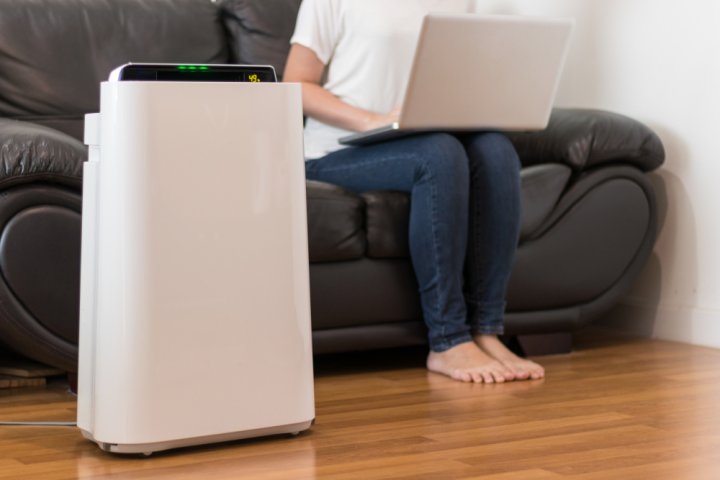
Both humidifiers and air purifiers impact the air you breathe at home, yet both serve different purposes, each equipped with a series of unique benefits. If you’re on the lookout for something to help combat allergies, dry air conditions or respiratory challenges or even if you’d just like to create a healthy environment for your child, then it is essential to understand the basic difference between these two devices:
Air Purifier:
An air purifier cleans the surrounding air by inactivating pollutants with its fan and filter surface components. Through a particular filtration technology that varies from the conventional HEPA filters to the latest PECO technology to ionizers, air in an air purifier passes through the unit, trapping the pollutants and then removing them on a filter and finally releasing clean air back into a room.Humidifier:
A humidifier however, simply adds water to the air by boiling water into steam and pulsing out the water droplets into the air with an ultrasonic technology or just evaporating the water by using a fan and a wick. Ultrasonic humidifiers can also release tiny mineral particles in the air if distilled water is used. According to varied research, even though the health effects of these particles isn’t established, it could have some positive effects on the lung tissues.
Humidifier vs Air Purifier: Which One Do You Need?
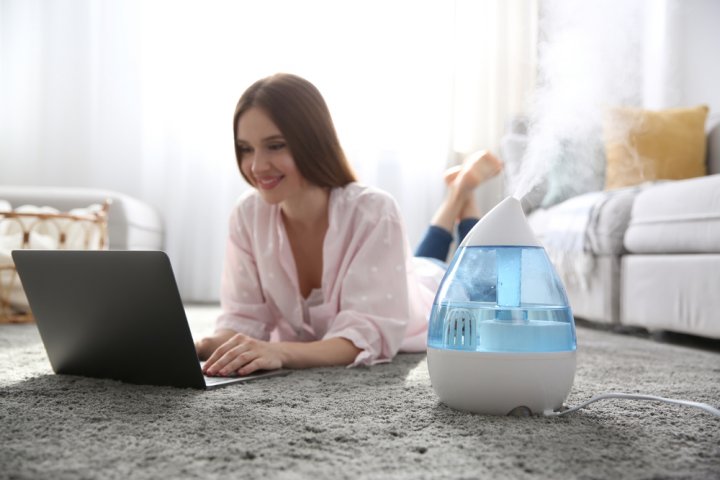
You normally don’t really pay attention to the quality of air you’re breathing in till things actually go wrong, then the need for an air purifier or a humidifier is felt deeply. Both these devices not only help improve the quality of air, but can also help avert the risks of contracting illnesses or suffering from allergens.
How Does an Air Purifier Work?
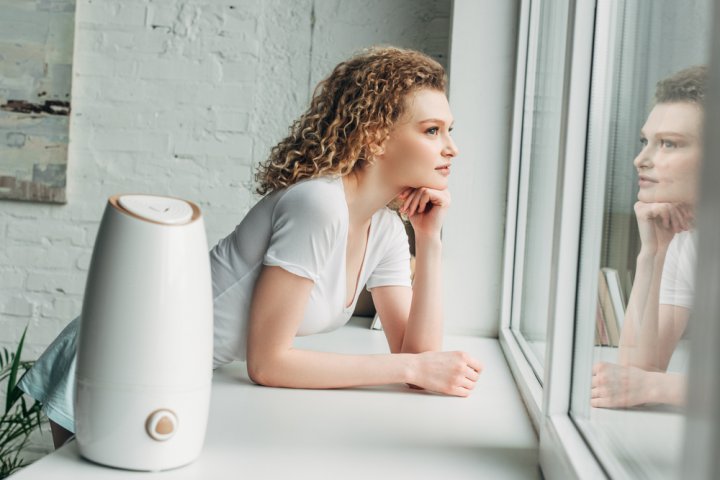
Known to catch all that’s floating in the air, be it pet dander, dust, etc., an air purifier not only cleanses the air but can also prevent respiratory problems like sinus, allergies, asthma, etc., and enables easy breathing. It works using a filter technology that eliminates airborne pollutants, by utilising electric fans to draw in the polluted air, and then pushing out the clean air. An air purifier doesn’t add any moisture to the air.
What Does a Humidifier Do?
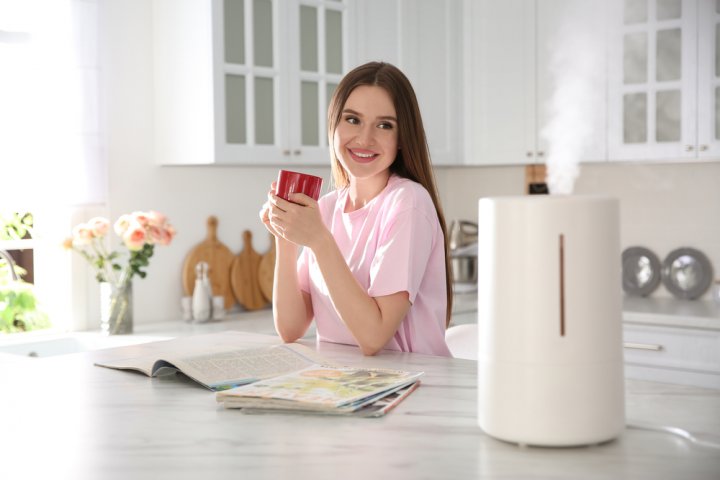
If you’ve woken up and felt your throat constricted or nose stuffed with sandpaper, that’s because the dry air has affected your respiratory system. A humidifier adds moisture to the air, which calms the irritation caused by dry air and helps keep your nasal passage and throat moist. It serves well those of you who have sinus issues or an irritated respiratory system. To operate a humidifier, the tank within it needs to be replenished with cold water from time to time to cool and moisturise the hot air. In situations when the winter air becomes too cold to bear, hot water can be added to the reservoir and the humidifier will release a warm mist in the air.
How Having an Air Purifier Helps?
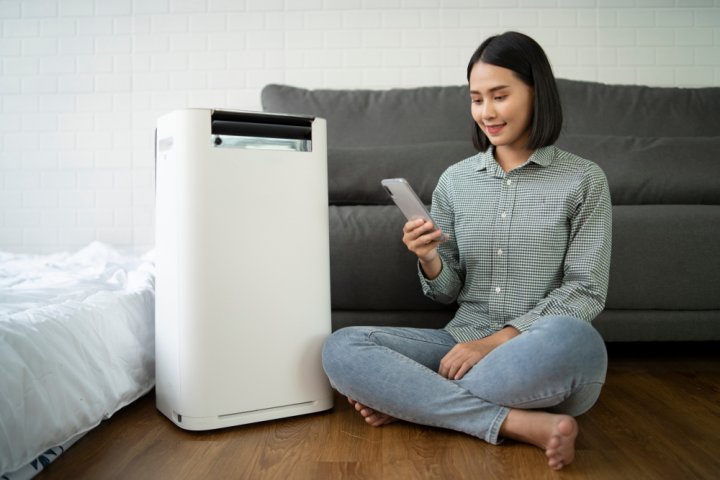
Since an air purifier removes environmental pollutants, it’s incredibly beneficial for those of you suffering from asthma, babies and if you are having allergies. It is also good for pet owners to clean up pet dander and also help your pets breathe easy. Owing to the clean air, a baby’s health is bound to be better as the elimination of dust particles and allergens from the air will keep them from affecting their lungs, eyes, or throat and relieve health issues and also help get rid of asthma triggering particles.
How a Humidifier Helps?
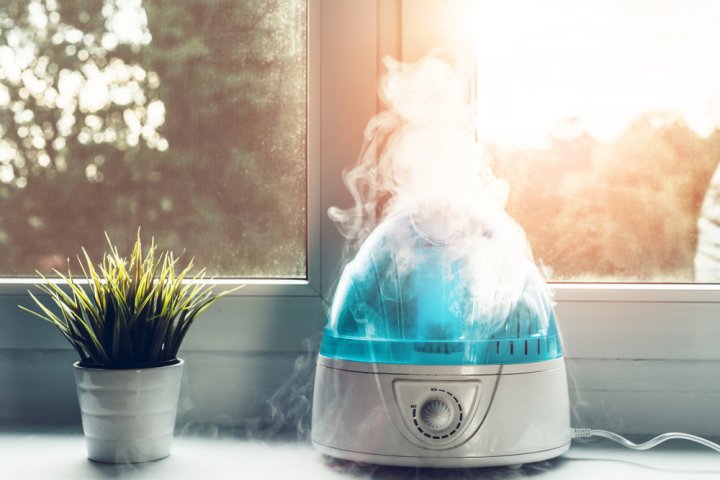
Dry air inside, can have an adverse effect on your health and dry up the nasal cavities and the respiratory system more than usual. A humidifier for a baby is a great idea, in the sense that it can enable comfortable breathing for the child by simply adding the moisture back in the air and for asthmatics, it can make the air more breathable, even though the asthma triggering particles will still be around.
How Does a Combination of Both Devices Work?
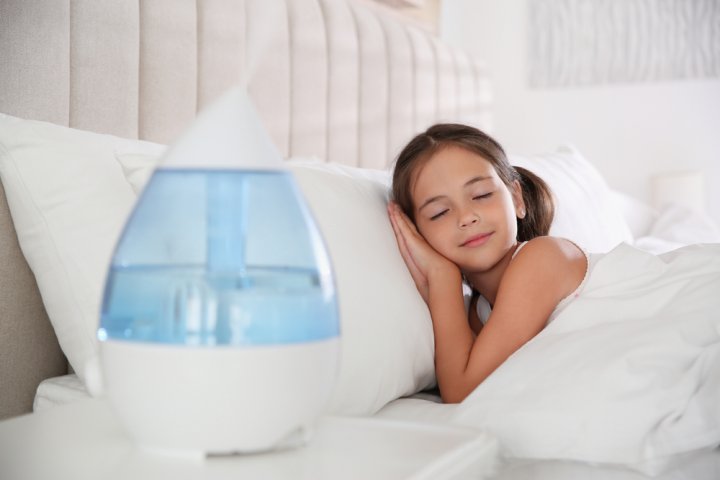
Although you can use a humidifier and an air purifier together, there are some rules that need to be followed as regards their placement in a room. The moisture from the humidifier can clog filters or limit the efficacy of an air purifier if placed close to each other. For instance, if the HEPA filter is left damp consistently owing to the output of the humidifier directed at it, the dampness could encourage bacterial or mould growth on the filter. Keep the stream of the humidifier away from the air purifier, more towards an open space rather than a wall, household appliance or furniture, with a distance between the two devices, no less than 2-3 meters.
How Humidifiers and Air Purifiers Impact Your Health

Air Purifier – Impact on Health
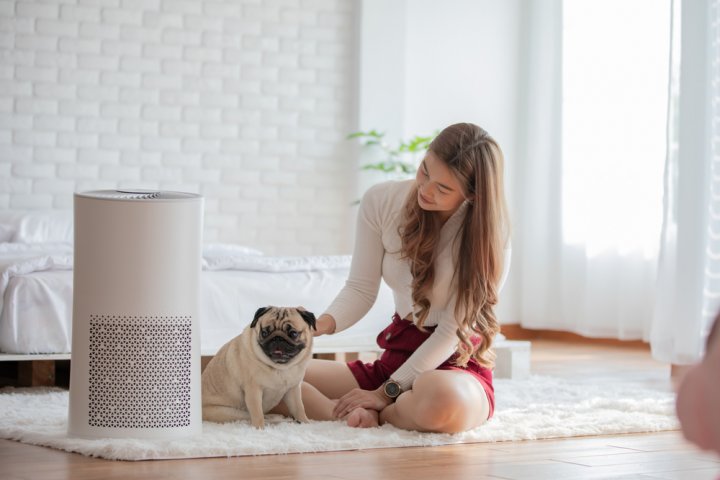
As air purifiers are designed to reduce allergens such as pet dander, dust mites, mould spores or pollen, those of you suffering from varied allergies and asthma can use an air purifier to reduce your exposure to such triggers. Typical air purifiers capture air particles that may be carrying viruses tiny enough to pass through normal air filters. Albeit, an air purifier cannot avoid an existing cold, it can alleviate the symptoms by eliminating other respiratory irritants from the air.
Humidifier's Impact on Health
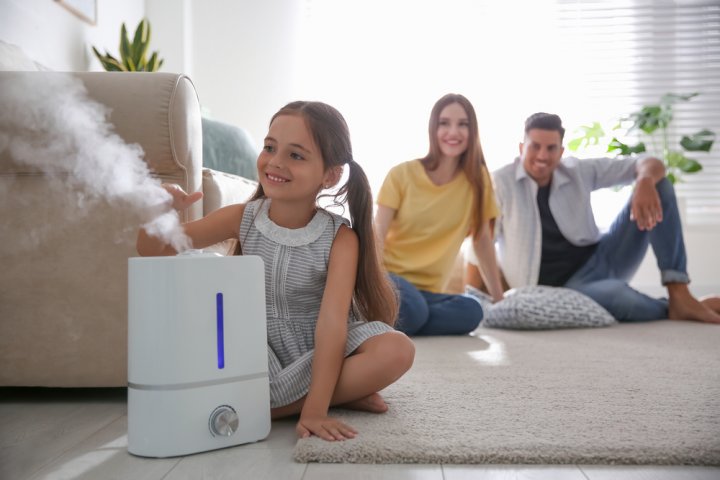
A humidifier has no impact on the allergen levels, but can help ease the symptoms if the nasal passage is dry and irritated. However, if it isn’t cleaned properly, a humidifier can develop mould and introduce spores into the air that could trigger asthma and allergy symptoms. A humidifier can also improve a stuffy nose condition or ease flu discomfort with the protective benefit of the right humidity level. According to established research, an increase in the humidity level to a range of 40-60% reduces the virus contaminants.
Which Works Better for Different Conditions?
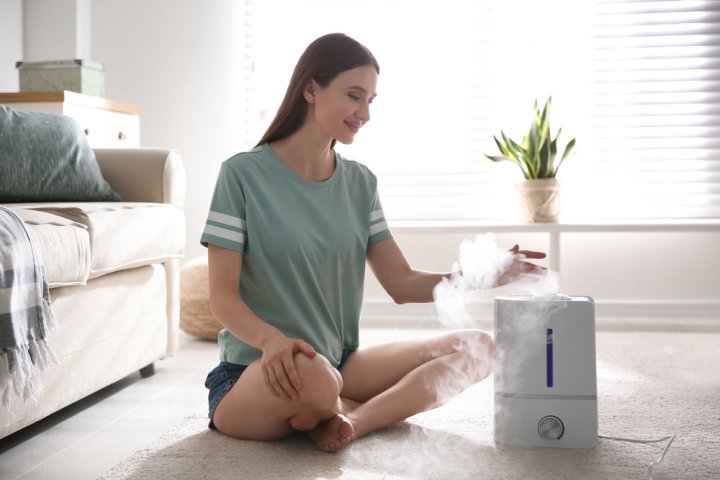
While a humidifier is better in a baby's nursery if the air is dry, a cool mist humidifier will help the infant with cough and cold symptoms by shrinking the nasal passage and helping the baby to breathe easier. An air purifier can reduce air pollutants in the long run, including elimination of potential toxins like asthma triggers, tobacco smoke, out-gassing plastics and other respiratory irritants. An air purifier can also help reduce the allergens levels in the air while a humidifier may just help sooth stuffy nasal passages. For asthma patients, a humidifier is better for easing the symptoms.
-
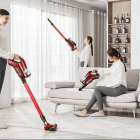 क्या आप अपना घर साफ करने में बहुत समय लगाते हैं? भारत में सर्वश्रेस्ठ 10 यूरेका फोर्ब्स वैक्यूम क्लीनर की सूचि जो आपको अपने घर में कहीं भी धूल साफ करने के लिए उपयोगी है और आपको पसंद आएंगे।(2021)
क्या आप अपना घर साफ करने में बहुत समय लगाते हैं? भारत में सर्वश्रेस्ठ 10 यूरेका फोर्ब्स वैक्यूम क्लीनर की सूचि जो आपको अपने घर में कहीं भी धूल साफ करने के लिए उपयोगी है और आपको पसंद आएंगे।(2021)
-
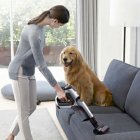 Do You Spend a Lot of Time Cleaning Your Home(2020)? Top 10 Eureka Forbes Vacuum Cleaner in India That You Will Love to Use Anywhere in Your Home to Clean the Dust!
Do You Spend a Lot of Time Cleaning Your Home(2020)? Top 10 Eureka Forbes Vacuum Cleaner in India That You Will Love to Use Anywhere in Your Home to Clean the Dust!
-
 Get That Well Toned and Perfectly Sculpted Body in the Comfort of Your Home. Your Quick Guide to the Best Home Gym Equipment in India and Why You Need to Get One Now (2021)
Get That Well Toned and Perfectly Sculpted Body in the Comfort of Your Home. Your Quick Guide to the Best Home Gym Equipment in India and Why You Need to Get One Now (2021)
-
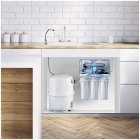 Are You Looking for a Water Purifier to Suit Your Sleek Modular Kitchen(2021)? 10 Best Under Sink Water Purifiers to Save Room in Your Kitchen
Are You Looking for a Water Purifier to Suit Your Sleek Modular Kitchen(2021)? 10 Best Under Sink Water Purifiers to Save Room in Your Kitchen
-
 A Party without the Right Decor is Hardly a Party: 5 Home Decor Ideas for Birthdays and 10 Party Props to Buy Online (2020)
A Party without the Right Decor is Hardly a Party: 5 Home Decor Ideas for Birthdays and 10 Party Props to Buy Online (2020)
Identify Your Family's Health Needs Before Deciding Which One to Buy
As would have been evident by now, air purifiers and humidifiers are different gadgets and are suited for different requirements. Consequently, it is important to identify your family's health needs first before deciding which gadget (or a combination of both) would be more useful in your home. We hope you would have loved this BP Guide. Stay connected with us for more such engaging content.

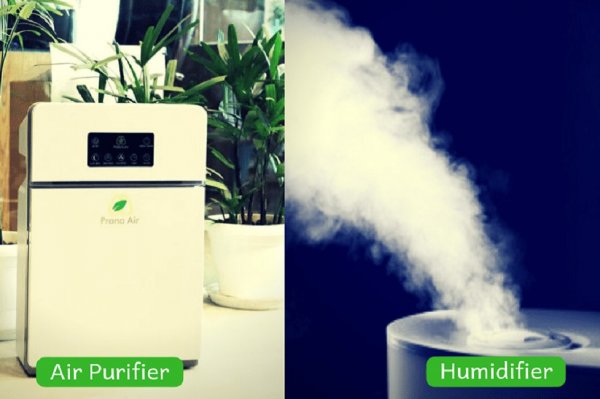
 Highlight the Best Facets of Your Incomparable Beauty: Discover the Best Face Highlighter Currently Available in India and Everything You Need to Know About Using Face Highlighters for Maximum Effect (2023)
Highlight the Best Facets of Your Incomparable Beauty: Discover the Best Face Highlighter Currently Available in India and Everything You Need to Know About Using Face Highlighters for Maximum Effect (2023)
 Forget the Blemishes and Get that Picture Perfect Flawless Radiance on Your Face: Check out the Best Foundations for Oily Skin Currently Available in India and Everything You Need to Know About Makeup Foundations (2023)
Forget the Blemishes and Get that Picture Perfect Flawless Radiance on Your Face: Check out the Best Foundations for Oily Skin Currently Available in India and Everything You Need to Know About Makeup Foundations (2023)
 Make Your Presence Felt Wherever You Go: Discover the Best Perfumes Under 2000 for Both Men and Women to Announce Your Arrival and Make Any Occasion Memorable (2023)
Make Your Presence Felt Wherever You Go: Discover the Best Perfumes Under 2000 for Both Men and Women to Announce Your Arrival and Make Any Occasion Memorable (2023)
 Protect Your Oily Skin from the Harmful Rays of the Sun: Discover the Best Gel Based Sunscreens for Oily Skin and Everything You Need to Know Before Buying One (2023)
Protect Your Oily Skin from the Harmful Rays of the Sun: Discover the Best Gel Based Sunscreens for Oily Skin and Everything You Need to Know Before Buying One (2023)
 Minor Blemishes and Wrinkles Affecting Your Confidence? Check out the Best BB Creams to Conceal Your Worries and Nourish Your Skin to Restore the Healthy, Radiant and Glowing Complexion Back Again (2023)
Minor Blemishes and Wrinkles Affecting Your Confidence? Check out the Best BB Creams to Conceal Your Worries and Nourish Your Skin to Restore the Healthy, Radiant and Glowing Complexion Back Again (2023)
